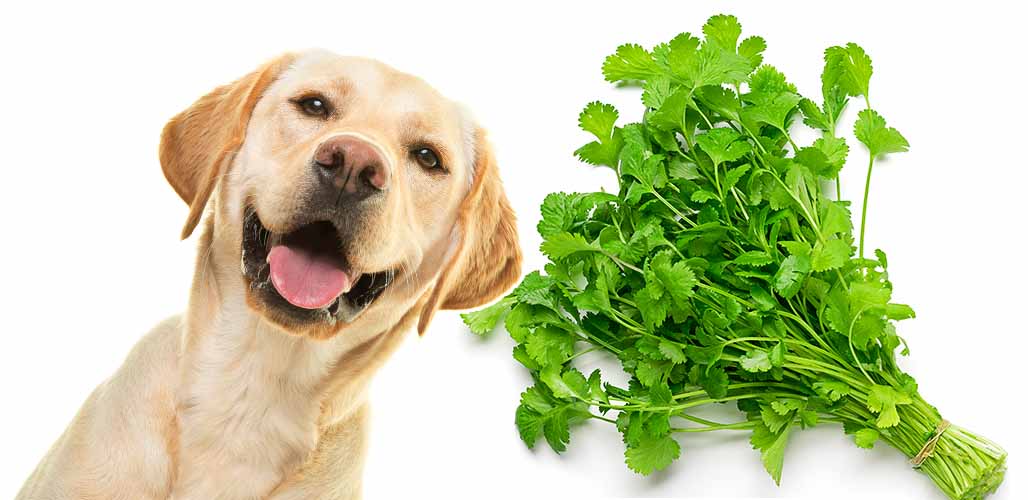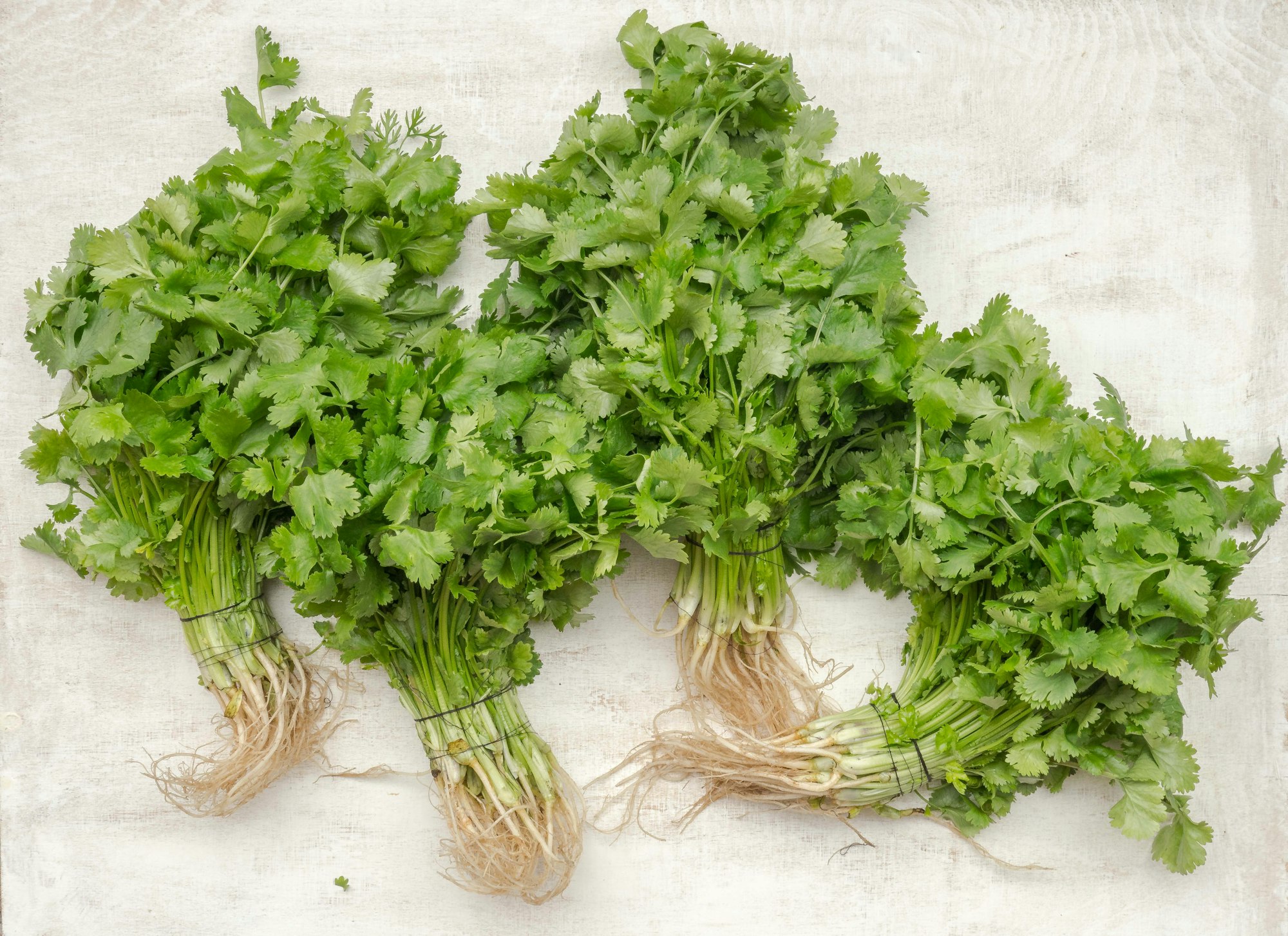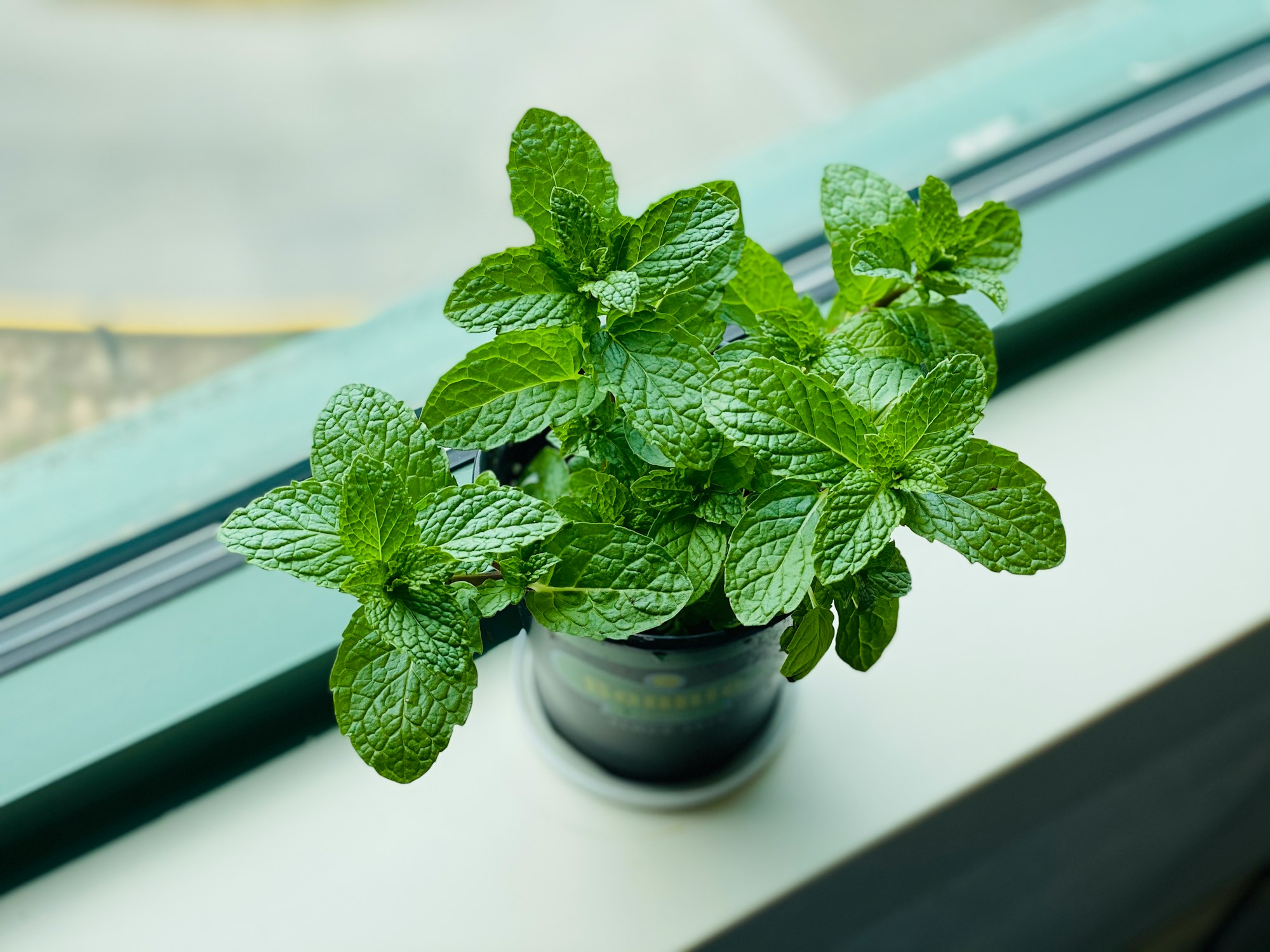As a dog owner, you may often wonder whether certain human foods are safe for your furry companion. One such food that raises questions is cilantro. Known for its distinct flavor and culinary uses, cilantro is a popular herb in many cuisines. But can dogs eat cilantro? In this article, we will explore whether cilantro is safe for dogs to consume and the potential benefits or risks associated with feeding it to your canine friend.

Is Cilantro Safe for Dogs?
Cilantro, also known as coriander, belongs to the same family as parsley. While cilantro is generally safe for human consumption, the same cannot be said for all dogs. Some dogs may have allergies or sensitivities to cilantro, leading to digestive issues or other adverse reactions. Therefore, it is essential to introduce cilantro to your dog's diet gradually and monitor their response.
Nutritional Benefits of Cilantro for Dogs
Cilantro, also known as coriander, offers several nutritional benefits for dogs. It is rich in vitamins, minerals, and antioxidants that can support their overall health. Here are some of the nutritional benefits of cilantro for dogs:
1. Vitamin A: Cilantro contains vitamin A, which plays a crucial role in maintaining healthy vision, promoting immune function, and supporting growth and development.
2. Vitamin C: Cilantro is a good source of vitamin C, an essential nutrient that acts as an antioxidant, boosts the immune system, and helps in collagen synthesis.
3. Vitamin K: Cilantro contains vitamin K, which plays a vital role in blood clotting, bone health, and maintaining healthy blood vessels.
4. Minerals: Cilantro provides minerals such as potassium, calcium, and magnesium, which are necessary for various bodily functions, including nerve transmission, muscle contraction, and bone health.
5. Antioxidants: Cilantro is rich in antioxidants like beta-carotene and quercetin, which help protect the body against damage from harmful free radicals and reduce inflammation.
6. Digestive Aid: Cilantro may have digestive benefits for dogs. It contains natural enzymes that can aid in digestion and promote a healthy gut.
Potential Risks of Feeding Cilantro to Dogs
While cilantro can be beneficial for many good family dogs, it's essential to be aware of potential risks and consider individual sensitivities. Here are some potential risks of feeding cilantro to dogs:

1. Allergies: Some dogs may be allergic to cilantro. Signs of an allergic reaction can include itching, skin rashes, hives, vomiting, or diarrhea. If you notice any adverse symptoms after feeding cilantro to your dog, discontinue its use and consult a veterinarian.
2. Digestive Upset: Introducing cilantro suddenly or feeding large amounts to a dog that isn't accustomed to it can cause digestive upset. Symptoms may include diarrhea, vomiting, or stomach discomfort. To avoid this, start by offering small quantities of cilantro and gradually increase the amount over time.
3. Herbicides and Pesticides: It's significant to ensure that the cilantro you feed your dog is free from herbicides, pesticides, or other harmful chemicals. Choose organic cilantro whenever possible or wash it thoroughly before feeding it to your dog.
4. Moderation: Although cilantro has nutritional benefits, it should be fed to dogs in moderation. It should never replace a balanced and complete diet specifically formulated for dogs. Cilantro should be considered as a supplement or occasional treat rather than a staple food.
Remember to consult with your veterinarian before introducing cilantro or any new food to your dog's diet, especially if your dog has pre-existing health conditions or dietary restrictions.
Moderation is Key
Like with any new food, moderation is key when introducing cilantro to your dog's diet. Start with small amounts and observe your dog's response. If they tolerate cilantro well, you can gradually increase the quantity. Remember that cilantro should only be a supplement to your dog's regular balanced diet and not a substitute for it.
Alternative Herbs for Dogs
If you're looking for alternative herbs to cilantro for your dog, several safe options can add flavor and nutritional value to their diet. Here are some alternative herbs that are generally well-tolerated by dogs:
1. Parsley: Similar to cilantro, parsley belongs to the same family and offers a fresh and aromatic flavor. It is rich in vitamins A, C, and K, as well as minerals like potassium and iron. Parsley can help freshen your dog's breath and provide antioxidants.
2. Basil: Basil is another herb that dogs can enjoy. It has a pleasant aroma and contains antioxidants, essential oils, and minerals. Basil can help support your dog's immune system and provide anti-inflammatory properties.
3. Mint: Mint is a refreshing herb that can add a burst of flavor to your dog's meals. It has cooling properties and can aid in digestion. Mint also contains antioxidants and can help freshen your dog's breath.

When using alternative herbs, it's significant to introduce them gradually and observe your dog's response. Each dog may have different preferences and tolerances, so it's essential to monitor for any signs of digestive upset or allergic reactions.
How to Safely Introduce Cilantro to Your Dog's Diet
When introducing cilantro to your dog's diet, it's crucial to do so safely and in moderation. Here are some steps to follow:
1. Wash Thoroughly: Before feeding cilantro to your dog, wash it thoroughly to remove any dirt, contaminants, or pesticide residue. Use organic cilantro whenever possible.
2. Start Small: Begin by offering a small amount of chopped cilantro mixed with your dog's regular food. This will allow your dog to become accustomed to the new flavor and texture.
3. Observe for Reactions: Monitor your dog for any signs of allergic reactions or digestive upset after consuming cilantro. Watch for symptoms such as itching, rashes, vomiting, diarrhea, or changes in behavior.
4. Gradually Increase Quantity: If your dog tolerates cilantro well and shows no adverse reactions, you can gradually increase the amount of cilantro over time. However, it's important to still maintain moderation and not exceed recommended quantities.
5. Consider Individual Sensitivities: Remember that each dog is unique, and some dogs may have sensitivities or allergies to cilantro. If you notice any negative reactions, discontinue feeding cilantro and consult with your veterinarian.

Serving Suggestions
There are various ways you can serve cilantro to your dog. You can incorporate it into homemade dog treats or sprinkle some chopped cilantro on top of their regular meals for an added burst of flavor. Remember to avoid using any seasoning or ingredients that could be harmful to dogs.
Signs of Allergic Reactions
While cilantro is generally safe for dogs, some dogs may be allergic or sensitive to it. It's necessary to be aware of the signs of allergic reactions in dogs after consuming cilantro. Here are some common signs to watch out for:
1. Skin Irritation: Dogs with cilantro allergies may develop skin irritations such as redness, itching, hives, or rashes. Pay attention to any changes in your dog's skin condition after eating cilantro.
2. Gastrointestinal Issues: Digestive problems can indicate an allergic reaction. These may include vomiting, diarrhea, excessive gas, abdominal discomfort, or changes in bowel movements.
3. Respiratory Symptoms: Allergic reactions can sometimes affect the respiratory system. Watch for signs such as coughing, wheezing, sneezing, difficulty breathing, or nasal congestion.
4. Swelling or Itching: Dogs may experience swelling of the face, lips, or tongue as well as itchiness around the mouth or body. Excessive scratching or pawing at the face could also indicate an allergic response.
If you notice any of these signs after your dog consumes cilantro, it's critical to discontinue feeding it and easing fear at the vet visit. They can help determine if the symptoms are indeed an allergic reaction and provide appropriate recommendations.

Cilantro as a Fresh Breath Aid for Dogs
Cilantro not only offers potential health benefits but can also act as a natural fresh breath aid for dogs. Its aromatic properties can help mask unpleasant odors and promote better oral hygiene. However, it's important to note that cilantro should not replace regular dental care practices for your dog. Here are a few things to keep in mind regarding cilantro and fresh breath for dogs:
1. Complement Dental Care: While cilantro can help freshen your dog's breath, it's essential to continue practicing good dental care. Regular brushing of your dog's teeth, providing dental chews, and scheduling professional dental cleanings when necessary is crucial for maintaining oral health.
2. Address Underlying Causes: Bad breath in dogs can be caused by various factors, including dental issues, gum disease, plaque buildup, or underlying health conditions. If your dog has persistent bad breath, consult your veterinarian to identify and address the underlying cause.
3. Consult Your Veterinarian: If you're considering using cilantro to freshen your dog's breath, it's always a good idea to consult with your veterinarian first. They can provide personalized advice based on your dog's specific needs and recommend suitable approaches for freshening their breath.
Remember, cilantro can be a complementary measure for addressing your dog's breath odor, but it's demanded to prioritize overall oral hygiene and consult your veterinarian for any concerns or specific recommendations tailored to your dog's individual needs.
DIY Cilantro Dog Treat Recipe
If you'd like to treat your happy dog to a homemade cilantro-infused snack, here's a simple recipe to try:
Ingredients:
· 1 cup rolled oats
· 1/2 cup finely chopped cilantro
· 1/4 cup unsweetened applesauce
· 1/4 cup water
Instructions:
1. Preheat your oven to 350°F (175°C).
2. In a bowl, combine the rolled oats, chopped cilantro, applesauce, and water. Mix well.
3. Roll the mixture into small balls and place them on a baking sheet lined with parchment paper.
4. Flatten the balls slightly with the back of a spoon.
5. Bake for approximately 15-20 minutes or until the treats are golden brown.
6. Allow the treats to cool completely before serving them to your dog.
Remember to give these treats in moderation as part of a balanced diet.
Conclusion
In conclusion, cilantro can be a safe and nutritious addition to your dog's diet when introduced in moderation. It provides various vitamins, minerals, and antioxidants that can support your dog's overall health. However, it's crucial to be mindful of your dog's sensitivities and monitor their response to cilantro. Always consult your veterinarian if you have any concerns or questions regarding your dog's diet or specific food items.
Frequently Asked Questions (FAQs)
1. Q: Can cilantro be toxic to dogs?
A: No, cilantro is not considered toxic to dogs. However, some dogs may have sensitivities or allergies to it.
2. Q: Can I feed my dog cilantro every day?
A: While small amounts of cilantro are generally safe, it's best to consult your veterinarian and ensure it fits into your dog's overall diet plan.
3. Q: Can cilantro help with my dog's bad breath?
A: Yes, cilantro has natural breath-freshening properties and can help combat bad breath in dogs.
4. Q: Are there any alternatives to cilantro for dogs?
A: Yes, parsley, basil, and mint are safe alternatives that can provide similar flavor and nutritional benefits.
5. Q: Should I cook cilantro before feeding it to my dog?
A: No, cilantro can be fed raw or lightly steamed. Cooking may reduce some of its nutritional value.
6. Q: Can cilantro help with my dog's bad breath?
A: Yes, cilantro has natural breath-freshening properties and can contribute to improving your dog's breath.
7. Q: Are there any other herbs that are safe for dogs?
A: Yes, herbs like parsley, basil, and mint are generally safe for dogs and can add flavor to their meals.
8. Q: How often vet before feeding cilantro to my dog?
A: It is always advisable to consult your veterinarian before introducing any new food into your dog's diet, especially if your dog has existing health conditions.
Thank you for reading our article on whether dogs can eat cilantro. We hope you found it informative and helpful in understanding the benefits and risks associated with feeding cilantro to your canine companion. If you have any further questions or concerns, please consult your veterinarian for personalized advice.

